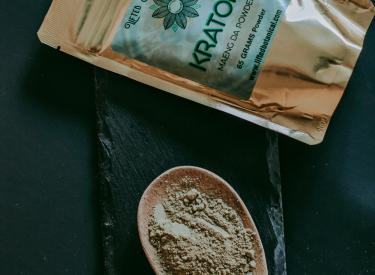
It’s Okay To Feel Angry
When a parent first discovers that their child is struggling with addiction, a wave of emotions and feelings washes over them. They may be shocked. Confused. Hurt. Sad. Scared. Anxious. They may be wracked with guilt and despair, too. But the one thing I can almost guarantee they will feel is anger.
I remember the first time I became aware of my son’s substance use disorder. It was one of those things I never imagined could happen to me. Drug addiction was something that happened in other people’s families, not mine. My son was brought up properly in a suburban home full of love. There’s no way he could ever be addicted to drugs.
But he was. And I was mad as hell.
I remember yelling at my son early on in his addiction. I yelled because I was angry, and I thought my yelling was somehow going to penetrate my son’s brain and magically make him change his ways. I needed to get through to him, and I was convinced the best way to do that was to crank the volume of my words up to eleven (or more).
Boy, was I wrong.
First off, let me say this: If you find out that your son or daughter has an issue with addiction, it’s okay to be angry. In fact, if you’re not angry, you should probably check your pulse. But just because it’s okay to be angry doesn’t mean it’s okay to yell. Or to criticize. Or to say hurtful things. That may be what your gut is telling you to do, but doing any of those things is counterproductive and will likely push your child away and make them want to use substances even more.
When I was yelling at my son, I was oblivious to the effect my words might be having on him. Yelling was my way of expressing my pain and displeasure, so I was going to yell because it made me feel better. I didn’t realize that I was being totally selfish. And to make matters worse, when my son would yell back at me—to express his pain and displeasure—I would get even more angry with him.
It took me a while to figure out that anger and yelling just bred more anger and yelling. But when I finally did, things started to change for the better—for everyone.
What we have to remember is this: A child battling addiction isn’t a bad person; they’re a sick person. So, our job as parents isn’t to try to get them to behave better; it’s to help them get well.
Believe it or not, there are ways to express your thoughts and feelings to your child without yelling. Sitting down with them and having heart-to-heart conversations is a great way to do this. Tell them what you want them to hear, but do it calmly, without yelling. Trust me: Tone and volume matter. One trick that may help you stay on the right track: Talk to your child like you’re talking to the child of a friend or a coworker. (You wouldn’t yell at a friend’s kid, would you?)
While you’re talking to your child, keep in mind that you’re not the only one who has feelings. A true conversation should never be one-sided, so allow your son or daughter to speak their mind. And while they’re speaking, be sure to listen. Be empathetic and do your absolute best to acknowledge and understand what they are feeling. If you show them respect, you vastly improve the chances that they will show you respect in return.
Being the parent of a child who struggles with addiction is one of the most challenging things any person can experience. As parents, we have dreams and expectations for our children from the moment they are born. When addiction rears its ugly head, those dreams and expectations can be snuffed out, and that’s not an easy thing to accept.
Yes, it’s okay to be angry. But it’s not okay to yell and scream at your child because you’re angry. Sure, the yelling might make you feel better for an instant. But it will inevitably make an already bad situation much, much worse. Take my word for it. I’ve been there and done that, and if I could go back in time and take back all the loud and hurtful things I said to my son before I knew any better, I would.
We can never forget this: Our children need our love, regardless of what life throws at us or them. And that includes addiction.
Originally published in 2017.



